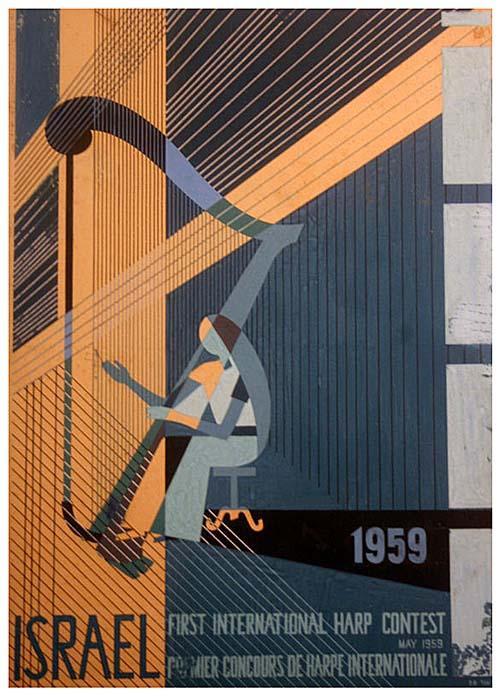Stanley Jordan: You Don’t Get to Peace without Real Solidarity
by Rima Merriman
After putting BDS activists through their paces for eight straight days of discussion on his Facebook page, noted Jazz musician Stanley Jordan announced on January 1st, that he had decided not to support the call of the Palestinian civil society to boycott the upcoming Red Sea Jazz Festival this month in Eilat, Israel.
In his announcement, Jordan referred to a “spirited online discussion and much deep soul-searching” but did not give a reason for his decision. Instead, he avowed his dedication to “world peace” and pledged to demonstrate to the many activists who had contributed to his Facebook thread with over 800 posts of information and considered arguments – including two messages from the Palestinian Campaign for the Academic and Cultural Boycott – that he had “heard” them and was ready to make others hear their impassioned plea. Jordan had concluded that that the best way “I could serve the cause would be to do my performance as scheduled, but separately organize an event in a major city in the United States to raise funds and awareness of the plight of the Palestinian people. The time frame will be in September or October 2013.”
Though not unexpected, that “conclusion” was problematic for many BDS advocates. The discussion on the thread ranged over a wide variety of topics triggered by Jordan’s questions. However, there was one central issue that kept rearing its head: What does it really mean to be in solidarity with an oppressed people?
Besides Jordan, some artists, like Native American poet and musician Joy Harjo, who are approached by PACBI and asked to heed the Palestinian people’s call to honor the academic and cultural boycott – that is, to stand in solidarity – too often arrogantly assume that they can demonstrate their support by performing in Israel and then gesturing to Palestinians through other means of their own choosing, for example by arranging for a parallel performance in the occupied territory. That’s an offer that PACBI, which is represented by over 170 civil society organizations and is growing in international support daily, categorically refuses. The list of artists who have respected the call includes Santana, Cat Power, Elvis Costello, Cassandra Wilson, Massive Attack, Jello Biafra, Faithless, Leftfield, Gorillaz, Pixies, Gil Scott Heron, and many more that have refused to play for apartheid and is growing.
It is well known that Israel utilizes international artists as part of a clear strategy of normalization to try and legitimize settler colonialism, occupation, and apartheid. “Branding Israel” is a propaganda campaign financed by the well-heeled Israeli Ministry of Foreign Affairs in order to showcase a side of Israel more palatable to the world. PACBI asks artists not to be complicit in these state efforts by not performing in Israeli institutions. Those who do not heed the call often end up regretting their decision, as has been expressed by Macy Gray, Pete Seeger, Richard Montoya and others.
Jordan is now trying to justify his decision by expressing inchoate beliefs about the power of his art to achieve “world peace” by “changing consciousness” while propounding the notion that the boycott undermines the freedom of the artist and limits the transformative power he possesses over his audience. By doing so, he has elevated the status as an artist as though he is ‘above’ human rights. True change of consciousness comes when the privileged use their power to stand in solidarity with the oppressed, not in telling them how best to resist – as he also tried in his comments on Facebook.
At several stages in the discussion, Jordan outlined his dilemma: “This situation and the information I’ve received has really moved me, and I regret that we have this sticking point about the boycott being the only acceptable form of help.” Activists pointed out that the boycott is one of the most effective ways to peacefully protest Israel’s deadly subjugation of Palestinians and one that is called for by those being oppressed. But more importantly, they explained what an act of solidarity actually demands. Adrian Boutureira Sansberro spelled this out most powerfully in his comments to Jordan:
“Firstly, we are in solidarity with the oppressed, not the oppressor. Secondly, being in solidarity entails being able to take direction from those one claims to be in solidarity with. Learning how to take direction, as to what is it that those we are in solidarity with wish us to do, is a huge aspect of shifting the relationships of power between the oppressed and the oppressor. It is also a way to really come face to face with our own true commitment and power issues. To do as we wish, is not being in solidarity. It is practicing supremacist charity. I say supremacist, because even when people claim to be in solidarity, they refuse to relinquish their own power and privilege as individuals. They refuse to surrender their own interests. They refuse to recognize that the collective must always be greater than the individual, or we are not in solidarity at all. We are then independent actors who cannot accept taking direction for whatever reason.”
In the end, Jordan was unable to relate to the above careful and important distinctions. He remained stuck on the notion of “help” in the sense of charity – thus his proposed charity concert in the US. “I would like to work in alliance with those who support the Palestinian people and, in the true spirit of alliance, have it be understood that there may be differences of opinion on how best to accomplish that.” Many people told Jordan that he could choose to do his own thing to show a sense of empathy or “an alliance” with the cause (as opposed to what is being requested of him specifically), but they also explained that such a choice would not be as effective and would certainly not be in solidarity in the true sense of the word, which is why Jordan’s decision not to support the boycott provoked Sylvia Posadas, one of his interlocutors to write simply: “So sorry you cannot fully support Palestinian people at this time. You have not been requested to give charity, but support for their ethical choice of tactic. In time, perhaps you will understand what ‘solidarity’ really means.”
Related Links
Spirituality, Stanley Jordan, and BDS
Stanley Jordan, Please Respect the Boycott of Israel
To the Palestinian People – Against the Normalisation of Apartheid by Joy Harjo
Hasbara and the Case for Cultural and Academic Boycott of Israel
Everything BDS: Stanley Jordan: Don’t Cross the Picket Line
BDS Switzerland asks Erik Truffaz to refrain playing in Israel
OPEN LETTER asking Érik Truffaz to refrain playing in Israel
OPEN LETTER to Yuri Honing: Boycott the Red Sea Jazz Festival in Apartheid Israel
Portico Quartet Respects the Boycott of Israel


